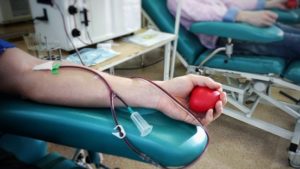The U.S. Food and Drug Administration (FDA) issued four blood donor eligibility guidelines on April 2, 2020 to help alleviate blood shortages during the COVID-19 pandemic—one on alternative procedures for blood and blood components collected during the COVID-19 public health emergency and three others on HIV, malaria, and Creutzfeldt-Jakob diseases (CJD). New guidance on blood and blood components collected until end of the public health emergency include:
- Blood establishments are no longer required to discard collections for errors in donor blood pressure, pulse, weight, or donation interval.
- Blood establishments now have 72 hours to clarify donor’s responses or omitted information after collection instead of 24 hours.
- Source Plasma may be released 45 days after collection from paid donors instead of 60 days.
Guidance on CJD and variant CJD were finalized and eliminate donor deferral for all time spent on U.S. military bases in Europe and European countries except the United Kingdom, France and Ireland.
In addition, guidance for malaria and HIV were updated and will remain in place for the duration of the public health emergency. Significant changes in guidelines include:
- Reducing the deferral following travel to malaria-endemic regions to 3 months from 12 months
- Reducing the deferral time to 3 months for men who have sex with men (MSM) and any female partners of MSM, individuals who have had recent blood transfusions or tattoos/piercings, IV-drug users, and sex workers.
The FDA expects many of these guidelines will be updated within 60 days following the termination of the COVID-19 public health emergency. All of these changes should be implemented immediately with proper FDA notification to help mitigate blood shortages.
References:
- FDA Guidance for Industry. Alternative procedures for blood and blood components during the COVID-19 public health emergency. April 2, 2020.
- FDA Guidance for Industry. Recommendations to Reduce the Possible Risk of Transmission of Creutzfeldt-Jakob Disease and Variant Creutzfeldt-Jakob Disease by Blood and Blood Components. April 2, 2020.
- FDA Guidance for Industry. Revised Recommendations for Reducing the Risk of Human Immunodeficiency Virus Transmission by Blood and Blood Products. April 2, 2020.
- FDA Guidance for Industry. Revised Recommendations to Reduce the Risk of Transfusion-Transmitted Malaria. April 2, 2020.

